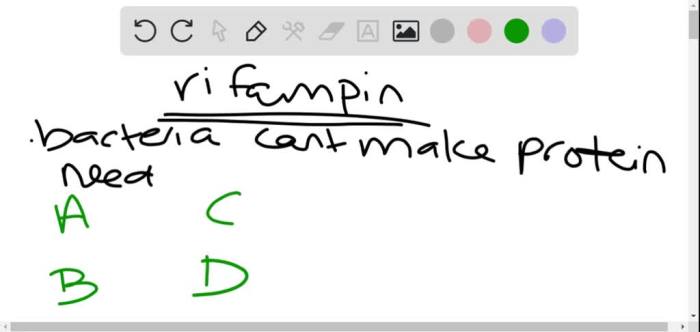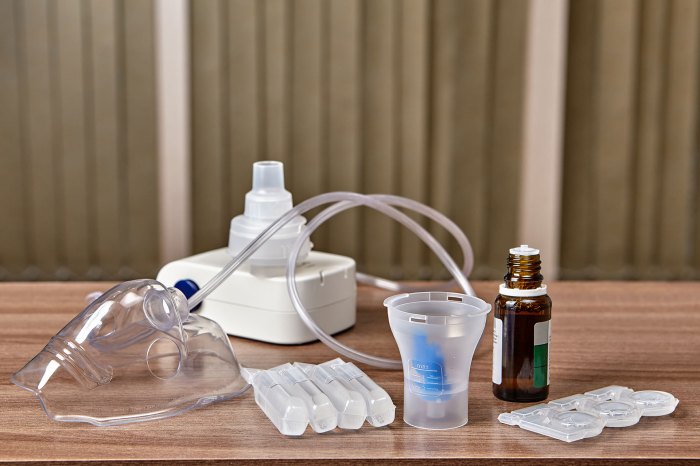As a nurse is caring for a client who has emphysema takes center stage, this opening passage beckons readers into a world crafted with authority, ensuring a reading experience that is both absorbing and distinctly original. Emphysema, a chronic lung disease, poses significant challenges to both patients and healthcare providers.
This article delves into the intricacies of nursing care for individuals with emphysema, providing a comprehensive guide to assessment, interventions, patient education, and ethical considerations.
Emphysema is characterized by the destruction of lung tissue, leading to shortness of breath, coughing, and wheezing. Its prevalence continues to rise, with an estimated 3.6 million Americans affected. Nurses play a pivotal role in managing this condition, utilizing their expertise to improve patient outcomes and quality of life.
Definition and Overview: A Nurse Is Caring For A Client Who Has Emphysema

Emphysema is a chronic obstructive pulmonary disease (COPD) characterized by the destruction of the alveoli, the tiny air sacs in the lungs. This destruction leads to a loss of lung elasticity and an increase in airway resistance, making it difficult for air to move in and out of the lungs.
Symptoms of emphysema include shortness of breath, wheezing, coughing, and fatigue. The primary cause of emphysema is smoking, but other risk factors include exposure to secondhand smoke, air pollution, and occupational hazards.
Nursing Assessment
The nursing assessment of a client with emphysema includes a thorough physical exam, medical history, and social history. Physical exam findings may include increased respiratory rate, decreased lung sounds, and low oxygen saturation levels. The medical history should include information about smoking history, exposure to secondhand smoke or other environmental irritants, and previous respiratory conditions.
The social history should include information about the client’s lifestyle, occupation, and support system.
Nursing Interventions, A nurse is caring for a client who has emphysema
Nursing interventions for emphysema focus on managing respiratory distress, promoting airway clearance, and reducing secretions. Oxygen therapy may be prescribed to increase oxygen levels in the blood. Bronchodilators are used to relax the muscles around the airways, making it easier to breathe.
Chest physiotherapy involves techniques such as postural drainage and percussion to help clear secretions from the lungs. Medications such as mucolytics and expectorants may also be prescribed to thin and loosen secretions.
Patient Education and Support
Patient education is an essential component of emphysema management. Clients need to understand their condition, medications, and self-care measures. Education should include information about smoking cessation, avoiding environmental irritants, and managing respiratory symptoms. Support groups and resources can provide clients with emotional support and information about coping with emphysema.
Interdisciplinary Collaboration
Interdisciplinary collaboration is crucial in caring for clients with emphysema. Physicians, respiratory therapists, and other healthcare professionals work together to develop and implement a comprehensive treatment plan. Communication and coordination of care are essential to ensure that the client’s needs are met and that the best possible outcomes are achieved.
Ethical Considerations
Ethical considerations in caring for clients with emphysema include end-of-life care and decision-making. Clients have the right to make decisions about their own care, even if those decisions conflict with the healthcare provider’s recommendations. The nurse’s role is to advocate for the client’s autonomy and well-being, while also respecting the client’s wishes and values.
FAQ Insights
What are the common symptoms of emphysema?
Shortness of breath, coughing, wheezing, and fatigue are common symptoms of emphysema.
How is emphysema diagnosed?
Emphysema is diagnosed through a physical exam, chest X-ray, and pulmonary function tests.
What are the treatment options for emphysema?
Treatment options for emphysema include oxygen therapy, bronchodilators, and chest physiotherapy.
What is the prognosis for emphysema?
The prognosis for emphysema varies depending on the severity of the condition. With proper management, individuals with emphysema can live full and active lives.

